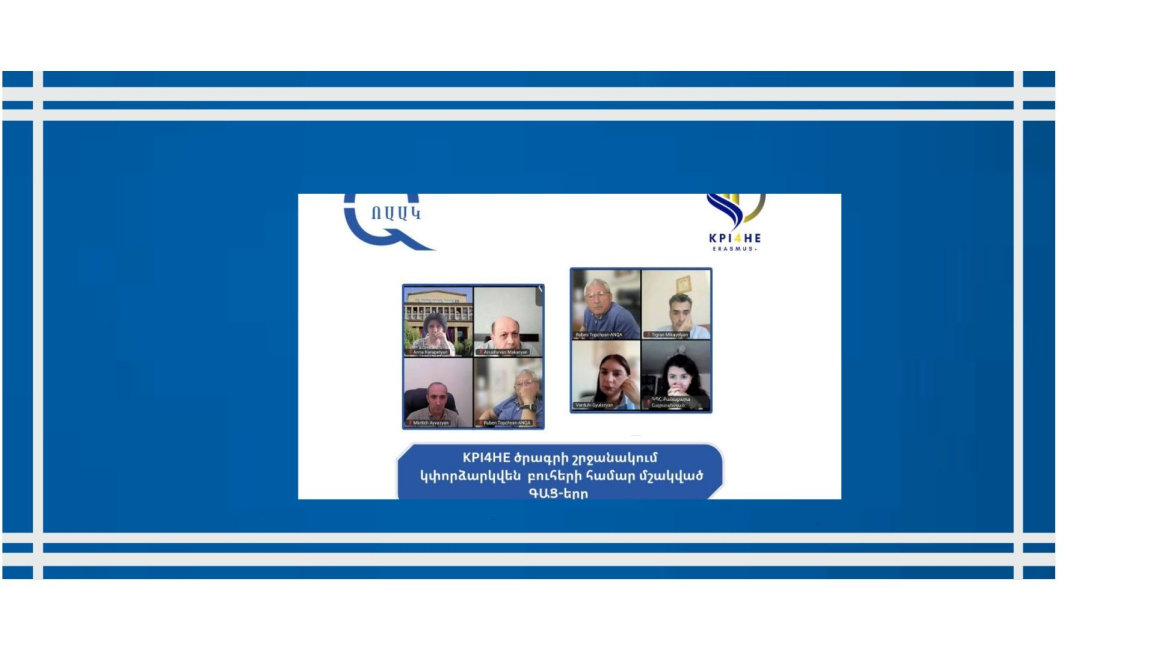The National Center for Professional Education Quality Assurance of the Republic of Armenia (ANQA) is coordinating the third work package of the Erasmus+ KPI4HE project. Within the framework of this work package, Key Performance Indicators (KPIs) previously developed for universities will be piloted at participating institutions. These indicators are designed to provide a comprehensive assessment of university performance and identify areas in need of improvement.
On September 12 of this year, an online meeting was held with representatives from ANQA, the Higher Education and Science Committee of the RA Ministry of Education, Science, Culture and Sports, and participating universities. The meeting focused on the criteria for selecting KPIs for piloting, approaches for their application, and the next steps in the process.
The main points discussed included:
Which indicators are most critical for university development (e.g., graduate rates, student engagement, research programs, etc.);
How to ensure the reliability of assessments and the transparency of the process;
How to utilize the results to enhance university funding and program improvement.
The piloting and implementation of the KPIs are expected to contribute to:
Enhancing university management and strategic planning;
Ensuring fair allocation of state funding;
Improving the quality of student education.
The ''Establishment of National framework of Key Performance Indicators for good governance and quality towards inclusive, digital and green oriented higher education in Armenia'' (KPI4HE) project is a three-year Erasmus+ initiative spanning 2024–2027.
The project aims to improve the governance of the higher education system, university strategic planning and management, and promote the development of high-quality, inclusive, digital, and green-oriented higher education in Armenia. Its objectives will be achieved through the development and implementation of a national KPI framework, the establishment of Institutional Research and Planning Services (IRPS), and the revision of state institutional accreditation standards.

